MENA, Refugee, & Immigrant Health Equity Planning Committee
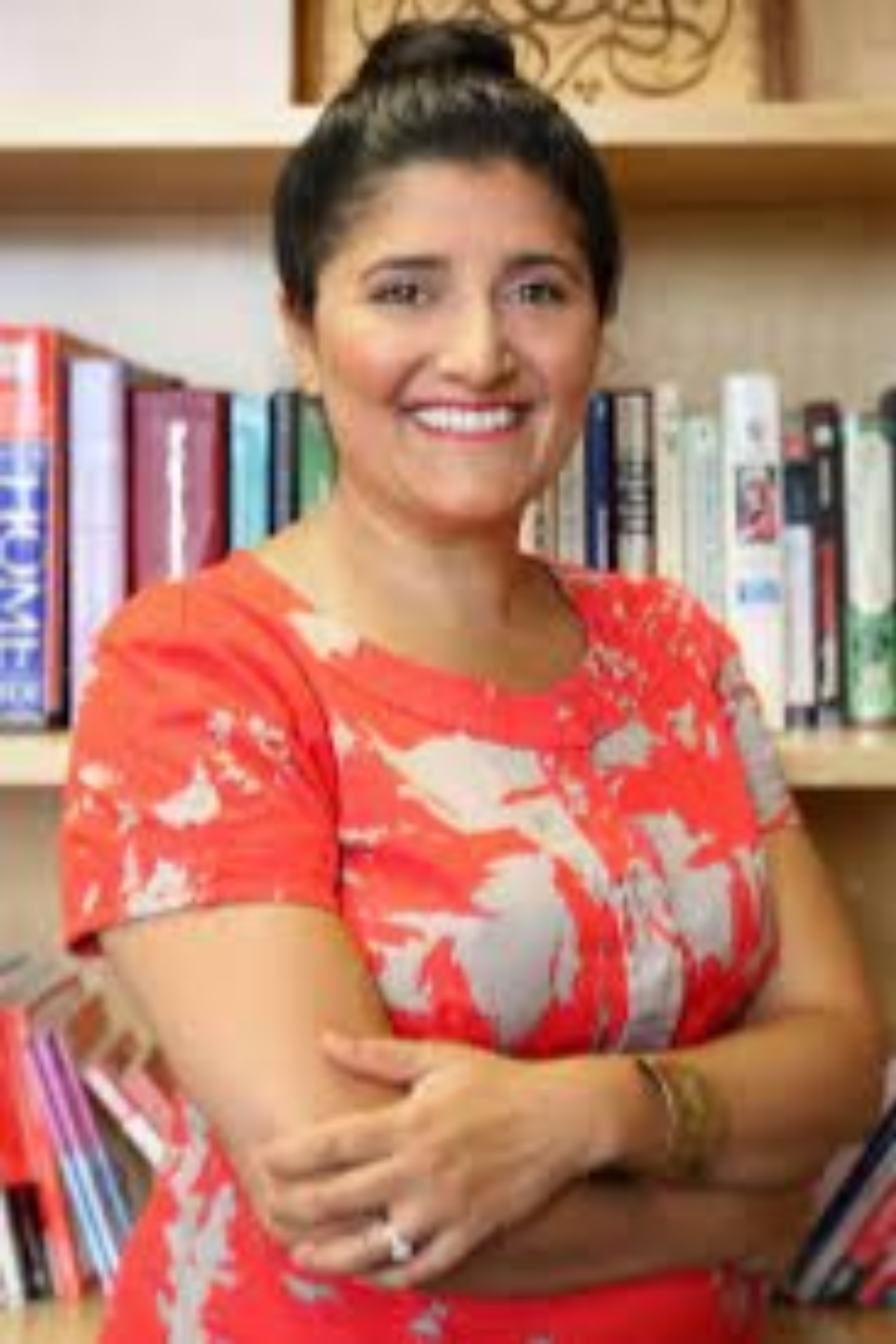 Madiha Tariq, MPH, Community Co-Chair, is the Public Health Director at the ACCESS Community Health and Research Center and oversees health promotion and disease prevention programs with a focus on immigrant and refugee communities. She has served as project director on several complex federal grants, including a highly successful health insurance navigator program, which gained recognition from President Obama. She has published research on access to care, mental health, chronic disease, and other issues linked to Arab health. Madiha chairs the Arab Health Summit, which is the only platform for ground-breaking research on health issues in Arab communities. She is a Robert Wood Johnson Foundation Interdisciplinary Research Leadership Program Fellow and holds a Master's in Public Health from George Washington University.
Madiha Tariq, MPH, Community Co-Chair, is the Public Health Director at the ACCESS Community Health and Research Center and oversees health promotion and disease prevention programs with a focus on immigrant and refugee communities. She has served as project director on several complex federal grants, including a highly successful health insurance navigator program, which gained recognition from President Obama. She has published research on access to care, mental health, chronic disease, and other issues linked to Arab health. Madiha chairs the Arab Health Summit, which is the only platform for ground-breaking research on health issues in Arab communities. She is a Robert Wood Johnson Foundation Interdisciplinary Research Leadership Program Fellow and holds a Master's in Public Health from George Washington University.
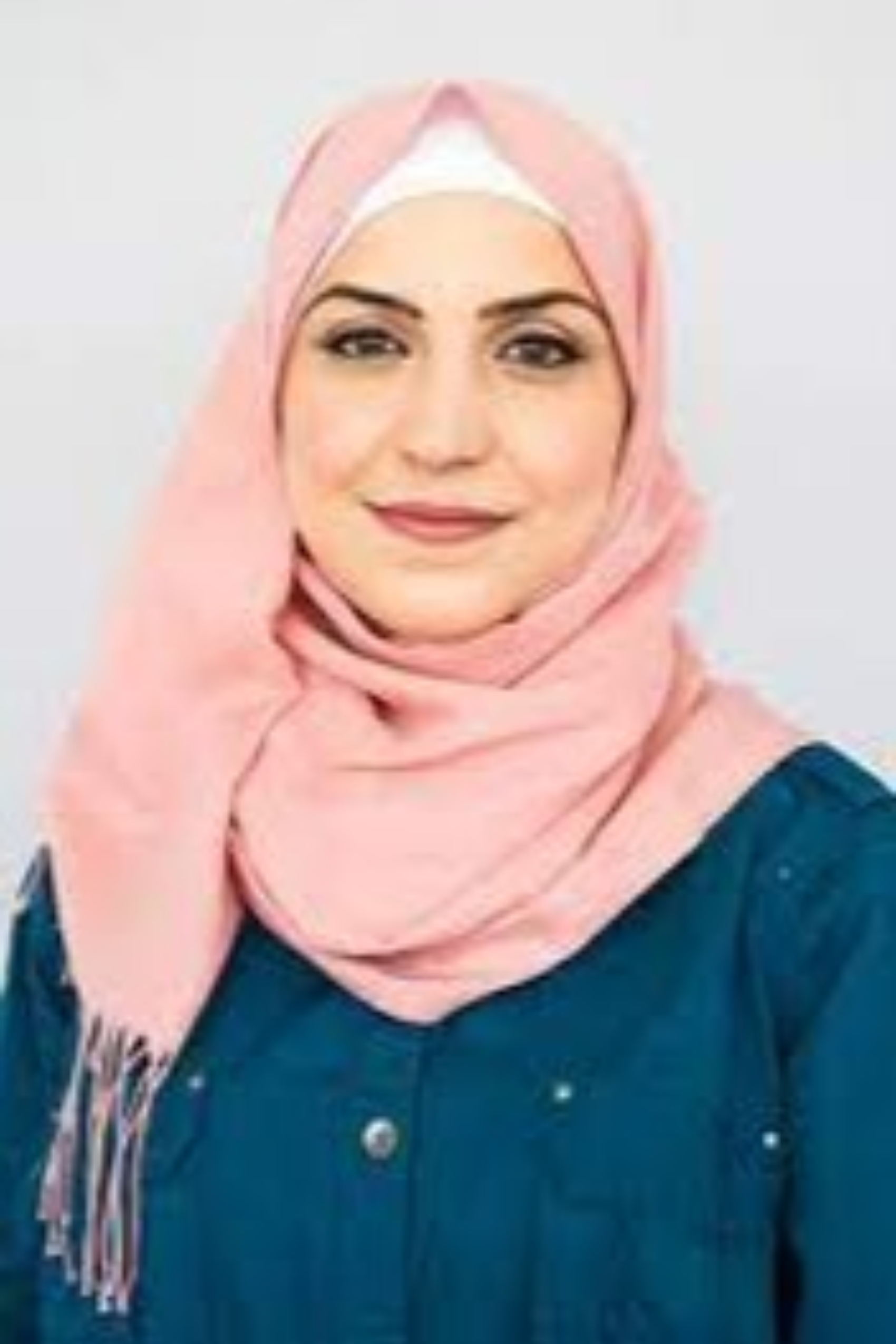 Maha Albdour, PhD, RN, Faculty Co-Chair, is a board-certified advanced public health nurse who earned her Ph.D. in Nursing at Wayne State University in 2017. Her research interest is the health of minority and immigrant adolescents and young adults. She conducted several projects among the Arab American community exploring psychosocial stressors such as childhood adversities (including war, armed conflicts, and community violence experiences), discrimination, acculturative stress, social support, and parent-child relationship influence on physical and mental health of adolescents and young adults. Dr. Albdour has recently concluded a study that examined the effect of past and current multiple stressors and their effects on the Endocrine system (cortisol levels) and health, both mental and physical, of immigrant young adults of Arabic descent. Currently, Dr. Albdour received funding for her study "depression and Metabolic Syndrome (MetS) in Arab-American parentâ€adolescent dyads", which will examine the interaction between parental and adolescent psycho-social stressors and their effects on mental health and cardiovascular disease risk among both parents and their children. The study was funded by WSU-ACCESS initiatives for pilot data supporting community-engaged research. In addition, Dr. Albdour is currently the principal investigator for a study that focuses on medical mistrust among ethnic minority young adults. Dr. Albdour has received the Midwest Nursing Society (MNRS) Adolescents Health Research Interest Group new investigator award to acknowledge her work with minority adolescents
Maha Albdour, PhD, RN, Faculty Co-Chair, is a board-certified advanced public health nurse who earned her Ph.D. in Nursing at Wayne State University in 2017. Her research interest is the health of minority and immigrant adolescents and young adults. She conducted several projects among the Arab American community exploring psychosocial stressors such as childhood adversities (including war, armed conflicts, and community violence experiences), discrimination, acculturative stress, social support, and parent-child relationship influence on physical and mental health of adolescents and young adults. Dr. Albdour has recently concluded a study that examined the effect of past and current multiple stressors and their effects on the Endocrine system (cortisol levels) and health, both mental and physical, of immigrant young adults of Arabic descent. Currently, Dr. Albdour received funding for her study "depression and Metabolic Syndrome (MetS) in Arab-American parentâ€adolescent dyads", which will examine the interaction between parental and adolescent psycho-social stressors and their effects on mental health and cardiovascular disease risk among both parents and their children. The study was funded by WSU-ACCESS initiatives for pilot data supporting community-engaged research. In addition, Dr. Albdour is currently the principal investigator for a study that focuses on medical mistrust among ethnic minority young adults. Dr. Albdour has received the Midwest Nursing Society (MNRS) Adolescents Health Research Interest Group new investigator award to acknowledge her work with minority adolescents
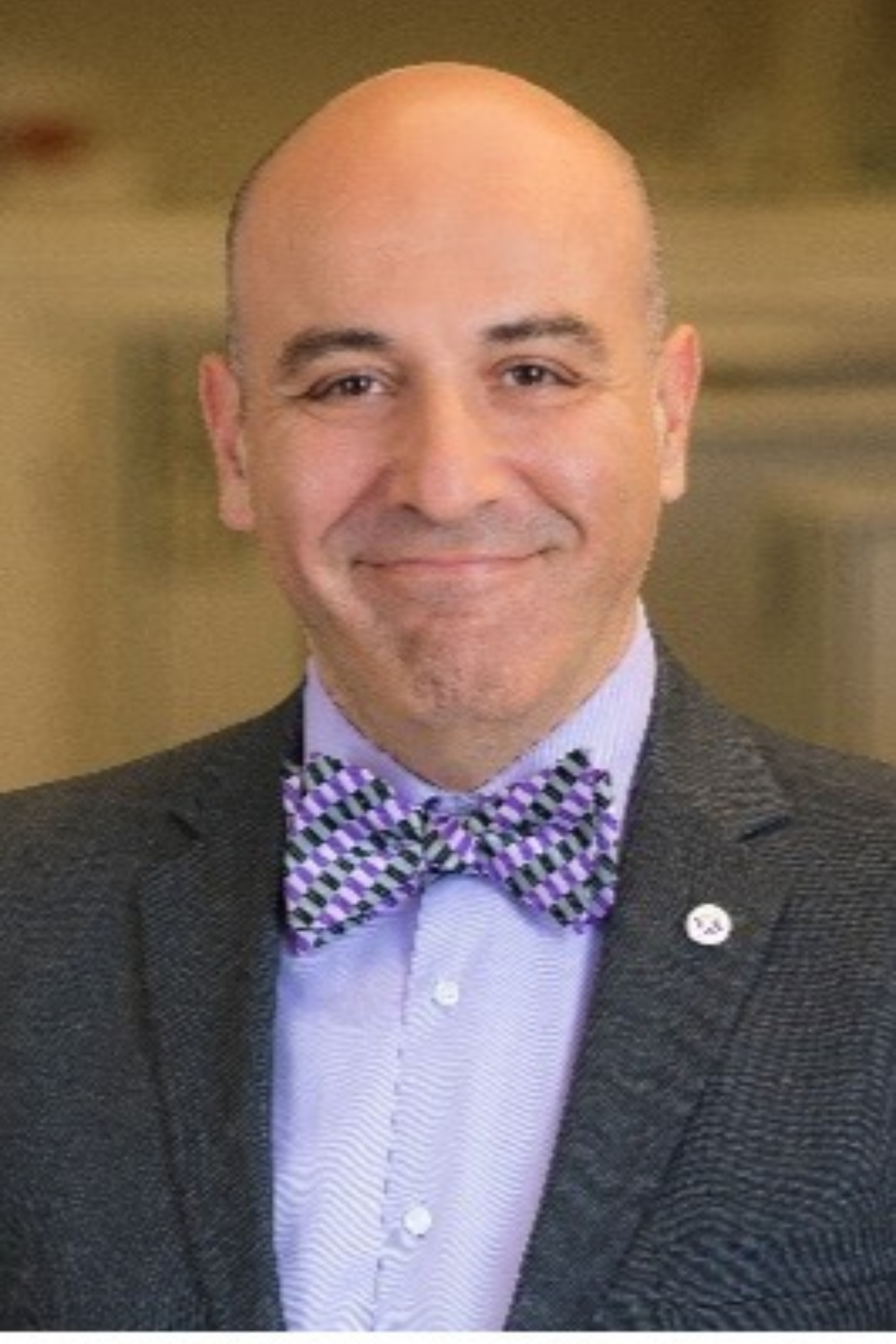 Mouhanad Hammami, MD, MHSA, is the president and CEO of Global Health Consultants, a consulting firm that addresses healthcare and wellness locally and globally with a focus on complete wellness, equity and social justice. Dr. Hammami previously served as Chief Health Strategist for Wayne County in Michigan, catering for the health and wellbeing of 1.2 million residents in the most populous county in Michigan. Prior to that he served as the senior vice president for Safety Net Transformation, Community Benefits, Health and Well-Being at Trinity Health. In this role, he led the strategy to improve health for individuals and improve the underlying social determinants of health in communities served. He also led work for Trinity Health's community-based delivery models and public health initiatives and partnered closely with state and national experts to integrate health care delivery with public health activities. Prior to his position with Trinity Health, Dr. Hammami served as director of the Wayne County (Michigan) Department of Health, Veterans and Community Wellness. There he oversaw all health, wellness, and human services for the 13th largest county in the nation. Before that, Hammami was chief of Health Operations and county health officer for the Wayne County Department of Health and Human Services. Hammami also served as the executive director of the National Arab American Medical Association (NAAMA) from 2006 to 2009 and then elected as its national president in 2011. A graduate of Aleppo University School of Medicine, Syria, Hammami completed his postdoctoral research in pediatrics at the Newborn Center of the University of Tennessee in Memphis, and then accepted a faculty appointment at Wayne State University School of Medicine in Detroit, Michigan, and a research position at the Detroit Medical Center, Department of Pediatrics. He then received his master's in health services administration from the University of Michigan. Hammami has been the recipient of several recognitions including the American Medical Association Foundation Excellence in Medicine and Leadership Award for his public health advocacy and community work.
Mouhanad Hammami, MD, MHSA, is the president and CEO of Global Health Consultants, a consulting firm that addresses healthcare and wellness locally and globally with a focus on complete wellness, equity and social justice. Dr. Hammami previously served as Chief Health Strategist for Wayne County in Michigan, catering for the health and wellbeing of 1.2 million residents in the most populous county in Michigan. Prior to that he served as the senior vice president for Safety Net Transformation, Community Benefits, Health and Well-Being at Trinity Health. In this role, he led the strategy to improve health for individuals and improve the underlying social determinants of health in communities served. He also led work for Trinity Health's community-based delivery models and public health initiatives and partnered closely with state and national experts to integrate health care delivery with public health activities. Prior to his position with Trinity Health, Dr. Hammami served as director of the Wayne County (Michigan) Department of Health, Veterans and Community Wellness. There he oversaw all health, wellness, and human services for the 13th largest county in the nation. Before that, Hammami was chief of Health Operations and county health officer for the Wayne County Department of Health and Human Services. Hammami also served as the executive director of the National Arab American Medical Association (NAAMA) from 2006 to 2009 and then elected as its national president in 2011. A graduate of Aleppo University School of Medicine, Syria, Hammami completed his postdoctoral research in pediatrics at the Newborn Center of the University of Tennessee in Memphis, and then accepted a faculty appointment at Wayne State University School of Medicine in Detroit, Michigan, and a research position at the Detroit Medical Center, Department of Pediatrics. He then received his master's in health services administration from the University of Michigan. Hammami has been the recipient of several recognitions including the American Medical Association Foundation Excellence in Medicine and Leadership Award for his public health advocacy and community work.
Helen McGuirk, MPH, is the State Refugee Health Coordinator for the Refugee Services program in the Office of Global Michigan, Department of Labor and Economic Opportunity. Helen is responsible for coordination of domestic medical screening and establishing access to health care services for newly arrived refugees. She also assists with the identification and creation of partnerships, community outreach, and engagement to ensure successful, long-term resettlement for all humanitarian arrivals in Michigan. Helen is particularly interested in engaging community members and stakeholders in the development and implementation of refugee support and resettlement programing. Prior to her current role, Helen acted as the Tuberculosis Public Health Consultant in the Michigan Department of Health and Human Services, from 2015-2021, providing federal and state public health guidance for tuberculosis programs in Michigan. Helen received her MPH with a specialization in Infectious Diseases and Microbiology from the University of Pittsburgh Graduate School of Public Health in 2014.
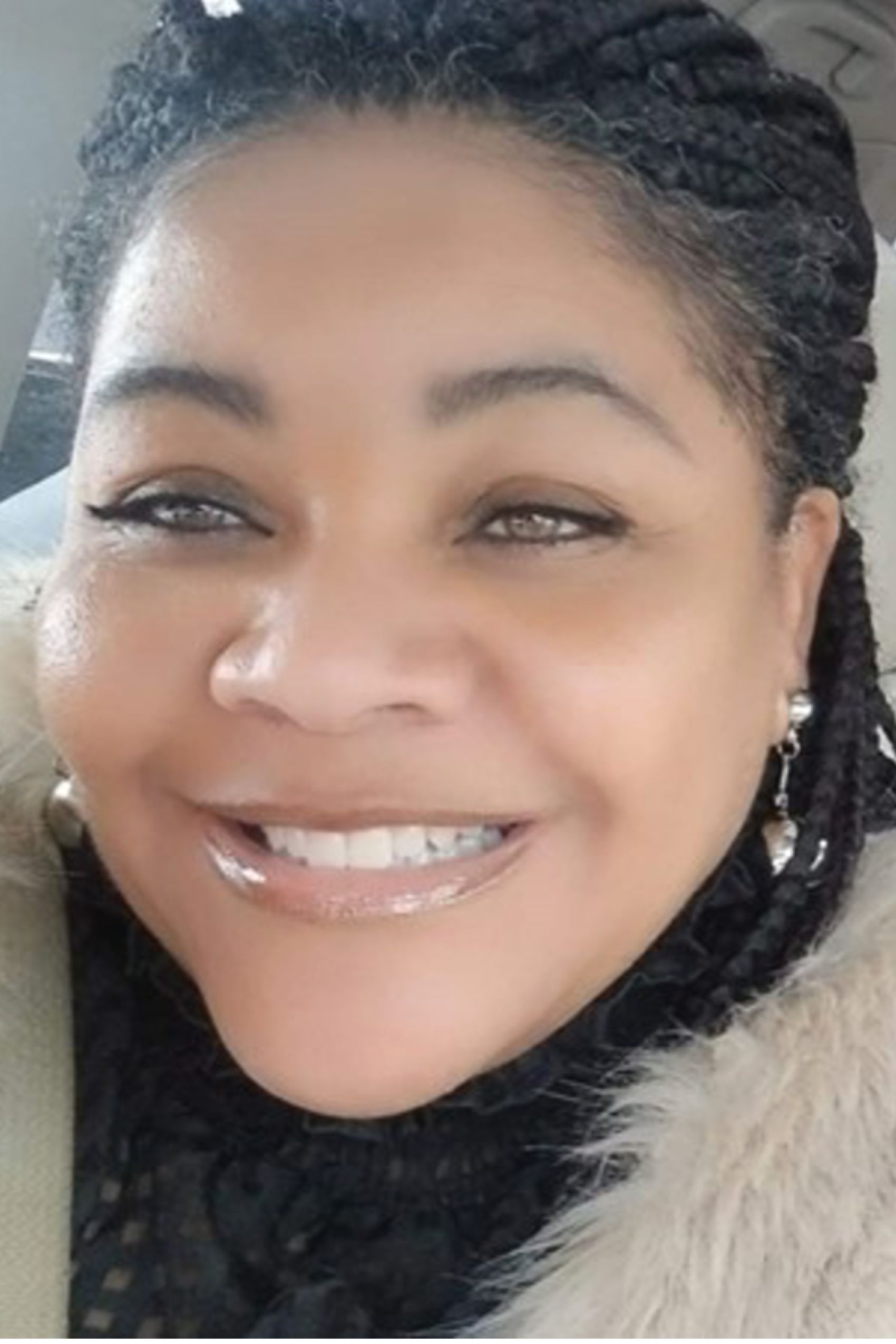 Yolanda R. Hill- Ashford, MSW, is currently the Director of Public Health Programs at the city of Detroit- Health Department where she has administrative oversight of 4 divisions that include; Community Health Services; Environmental Health & Food Safety; HIV/STI and Behavioral Health; with direct management of 5 programs including; Safe Routes Ambassadors Program, Fetal Infant Mortality Review (FIMR), Maternal Mortality & Vitality Review Team (MMVRT), Community Health Worker- training, Hope Starts Here-Imperative 1, and our recently funded Senior Initiative-RESET (ReEngaging in Selfcare and Enjoying Today). Yolanda has over 31 years in public health with an extensive background in Community Based Participatory Research (CBPR), program development, outreach, education and training. She was also instrumental in the implementation and operationalizing of 2 major initiatives in Detroit to address infant mortality; SisterFriends Detroit and the nationally recognized "Women Inspired Neighborhood Network- Detroit also called, Sew Up the Safety Net for Women and Children" both are infant mortality reduction programs focusing on utilizing Community Health Workers to address the Social Determinants of Health to impact birth outcomes (Women Inspired Neighborhood Network Detroit is a program of Henry Ford Health System in Detroit). She has worked diligently building collaboratives, for the empowerment, employment and training of community health workers (CHW's) in the city of Detroit. Working collectively with educational institutions, the community, public and private business sectors Yolanda chaired the development of a certificate program for CHW's at Wayne County Community College in the early 2000's before it was a recognized labor force field. To date with the development of The Center for Community Health Workers She aims to continue to advocate for the advancement of this unique workforce through upskilling, cross training as well as the provision of career and educational ladders. Yolanda has participated in numerous research initiatives, journal writings, as well as local and national presentations that focused on maternal child health, social justice, the social determinants of health, health literacy, asthma, diabetes, cardiovascular disease, health promotion, breast and cervical cancer, health equity and so much more. Yolanda's goals as a public health social worker are grounded in her desire to ensure a healthy life for all who live work visit or play in the city of Detroit.
Yolanda R. Hill- Ashford, MSW, is currently the Director of Public Health Programs at the city of Detroit- Health Department where she has administrative oversight of 4 divisions that include; Community Health Services; Environmental Health & Food Safety; HIV/STI and Behavioral Health; with direct management of 5 programs including; Safe Routes Ambassadors Program, Fetal Infant Mortality Review (FIMR), Maternal Mortality & Vitality Review Team (MMVRT), Community Health Worker- training, Hope Starts Here-Imperative 1, and our recently funded Senior Initiative-RESET (ReEngaging in Selfcare and Enjoying Today). Yolanda has over 31 years in public health with an extensive background in Community Based Participatory Research (CBPR), program development, outreach, education and training. She was also instrumental in the implementation and operationalizing of 2 major initiatives in Detroit to address infant mortality; SisterFriends Detroit and the nationally recognized "Women Inspired Neighborhood Network- Detroit also called, Sew Up the Safety Net for Women and Children" both are infant mortality reduction programs focusing on utilizing Community Health Workers to address the Social Determinants of Health to impact birth outcomes (Women Inspired Neighborhood Network Detroit is a program of Henry Ford Health System in Detroit). She has worked diligently building collaboratives, for the empowerment, employment and training of community health workers (CHW's) in the city of Detroit. Working collectively with educational institutions, the community, public and private business sectors Yolanda chaired the development of a certificate program for CHW's at Wayne County Community College in the early 2000's before it was a recognized labor force field. To date with the development of The Center for Community Health Workers She aims to continue to advocate for the advancement of this unique workforce through upskilling, cross training as well as the provision of career and educational ladders. Yolanda has participated in numerous research initiatives, journal writings, as well as local and national presentations that focused on maternal child health, social justice, the social determinants of health, health literacy, asthma, diabetes, cardiovascular disease, health promotion, breast and cervical cancer, health equity and so much more. Yolanda's goals as a public health social worker are grounded in her desire to ensure a healthy life for all who live work visit or play in the city of Detroit.
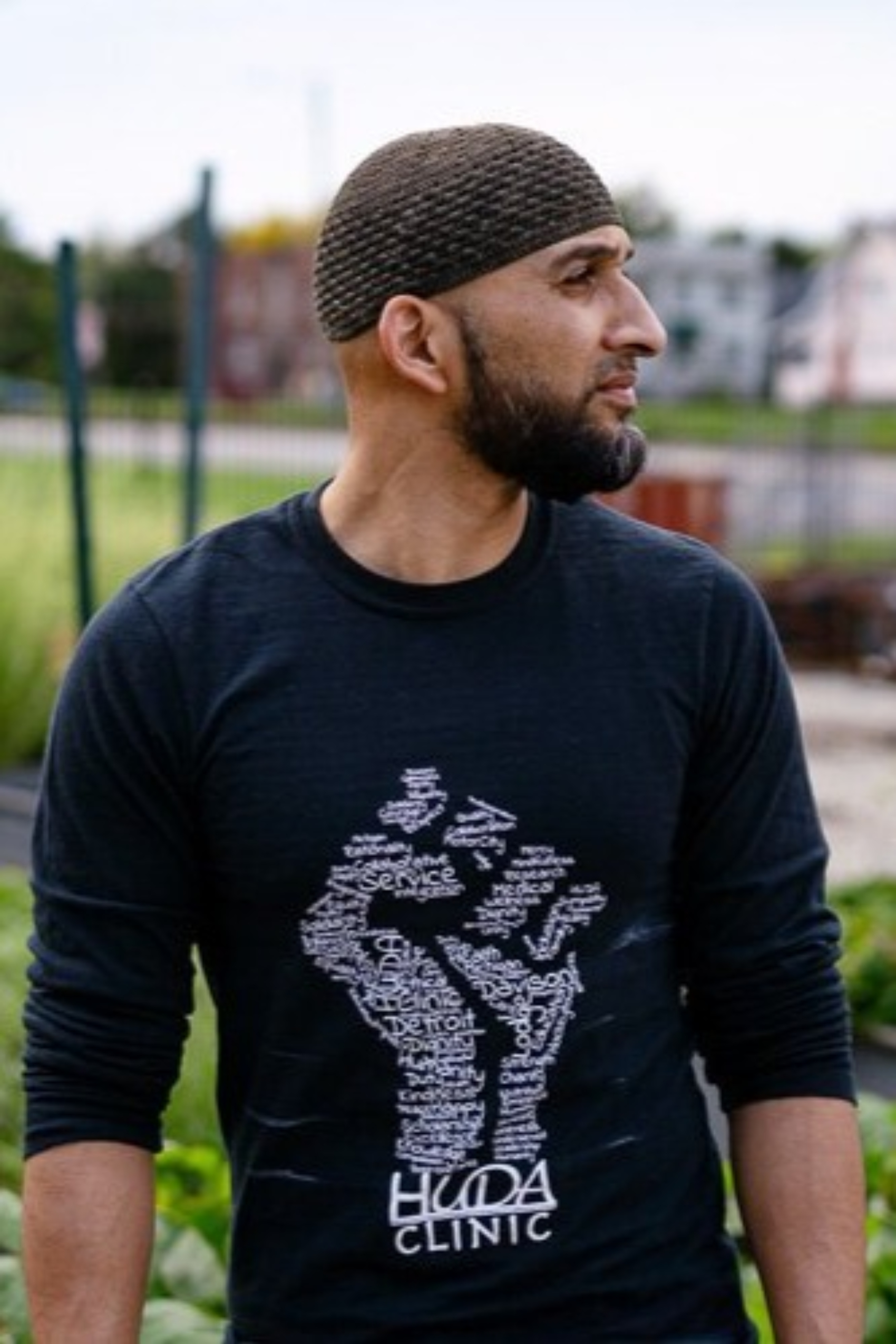 Babar Qadri, MS, received his MS in Physician Assistant Studies from Mercy College in 2010. He has served as the Educational Director at the Health Unit on Davison Avenue Clinic (HUDA Clinic) and is the founder of the HUDA Urban Garden. Babar is also a professor at the Wayne State University Applebaum College of Pharmacy and Health Sciences. Babar specializes in integrative medicine with a focus on orthopedics and emergency medicine.
Babar Qadri, MS, received his MS in Physician Assistant Studies from Mercy College in 2010. He has served as the Educational Director at the Health Unit on Davison Avenue Clinic (HUDA Clinic) and is the founder of the HUDA Urban Garden. Babar is also a professor at the Wayne State University Applebaum College of Pharmacy and Health Sciences. Babar specializes in integrative medicine with a focus on orthopedics and emergency medicine.
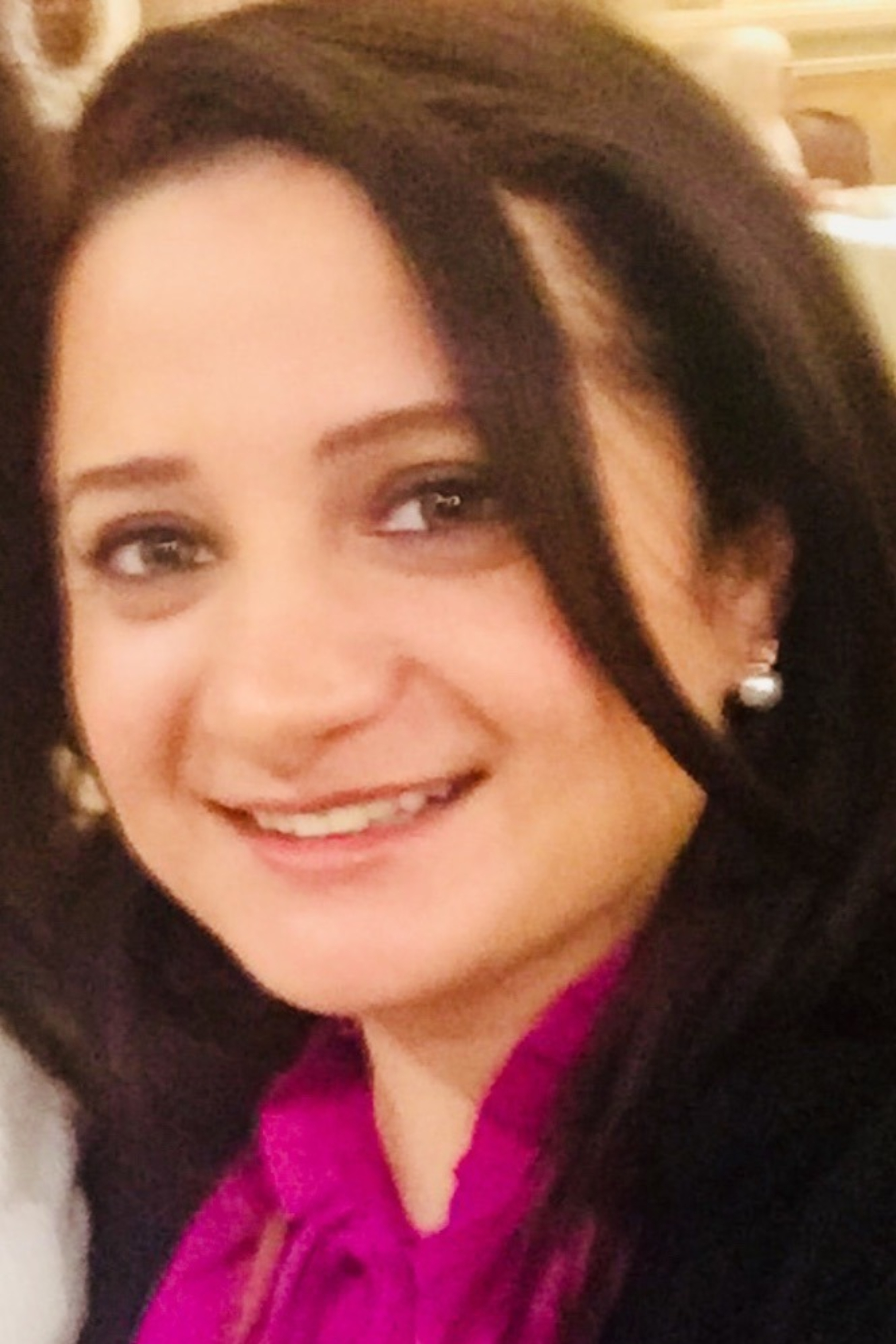 Zena H. Hamdan, PhD, MS, is the Coordinator of Health Education at the 1795 Group. She received her Bachelor of Science Degree in Medical Laboratory Sciences; she earned two Master's Degrees in Environmental Health Sciences from the American University of Beirut and Toxicology from Wayne State University; and then her Doctoral Degree in Health Education and Promotion from Walden University. She also holds Adjunct Faculty positions at the University of Detroit Mercy, and Capella University where she teaches multiple public health and science courses.
Zena H. Hamdan, PhD, MS, is the Coordinator of Health Education at the 1795 Group. She received her Bachelor of Science Degree in Medical Laboratory Sciences; she earned two Master's Degrees in Environmental Health Sciences from the American University of Beirut and Toxicology from Wayne State University; and then her Doctoral Degree in Health Education and Promotion from Walden University. She also holds Adjunct Faculty positions at the University of Detroit Mercy, and Capella University where she teaches multiple public health and science courses.
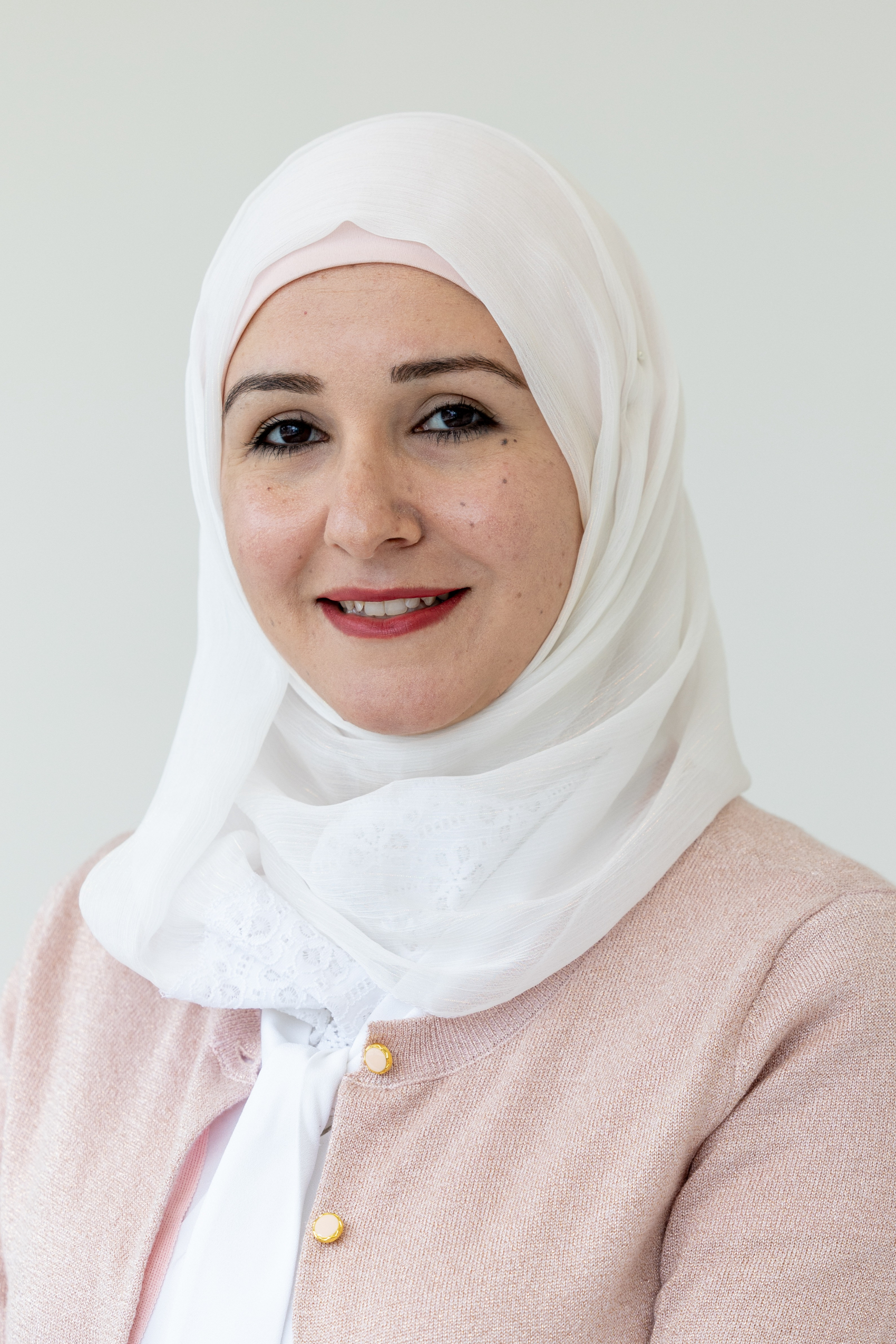 Dalia Khalil, PhD, RN, earned her PhD in Nursing and Infant Mental Health from WSU in 2017 and was appointed as an Assistant Professor in the college of nursing the same year. Her work has focused on the impact of parents' stress, depression, and trauma on infants (6-24 months old) as well as older children (7-18 years) among refugee and immigrant families of Arabic descent. Her research is focused on examining symptoms of anxiety, depression, and posttraumatic stress disorder, parenting, coparenting, as well as behavioral and biological correlates, using self-reported measures of psychosocial factors and behavioral development. Additionally, buccal swabs are collected to measure telomere length and hair samples to measure cortisol levels among study participants. In November 2020, her team received funding from the National Institute of Health (NIH), Eunice Kennedy Shriver National Institute of Child Health and Human Development (NICHD) for their R03 study entitled "Family Stress, Coparenting, and Infant Development among Immigrant Arab American Families". Additionally, they have received the 2021 Brain and Behavior Research Foundation (BBRF) NARSAD Young Investigator Grant for our study titled: "Psychobiological Factors Affecting Mental Health among Immigrant and Refugee Parents and their Children." Understanding the effects of migration-related stressors on parents and children is imperative for articulating risk and protective factors influencing infant and children's outcomes. Dr. Khalial's long-term goal is to guide the development of interventions to prevent the negative effects of family stress (maternal and paternal) on their children.
Dalia Khalil, PhD, RN, earned her PhD in Nursing and Infant Mental Health from WSU in 2017 and was appointed as an Assistant Professor in the college of nursing the same year. Her work has focused on the impact of parents' stress, depression, and trauma on infants (6-24 months old) as well as older children (7-18 years) among refugee and immigrant families of Arabic descent. Her research is focused on examining symptoms of anxiety, depression, and posttraumatic stress disorder, parenting, coparenting, as well as behavioral and biological correlates, using self-reported measures of psychosocial factors and behavioral development. Additionally, buccal swabs are collected to measure telomere length and hair samples to measure cortisol levels among study participants. In November 2020, her team received funding from the National Institute of Health (NIH), Eunice Kennedy Shriver National Institute of Child Health and Human Development (NICHD) for their R03 study entitled "Family Stress, Coparenting, and Infant Development among Immigrant Arab American Families". Additionally, they have received the 2021 Brain and Behavior Research Foundation (BBRF) NARSAD Young Investigator Grant for our study titled: "Psychobiological Factors Affecting Mental Health among Immigrant and Refugee Parents and their Children." Understanding the effects of migration-related stressors on parents and children is imperative for articulating risk and protective factors influencing infant and children's outcomes. Dr. Khalial's long-term goal is to guide the development of interventions to prevent the negative effects of family stress (maternal and paternal) on their children.
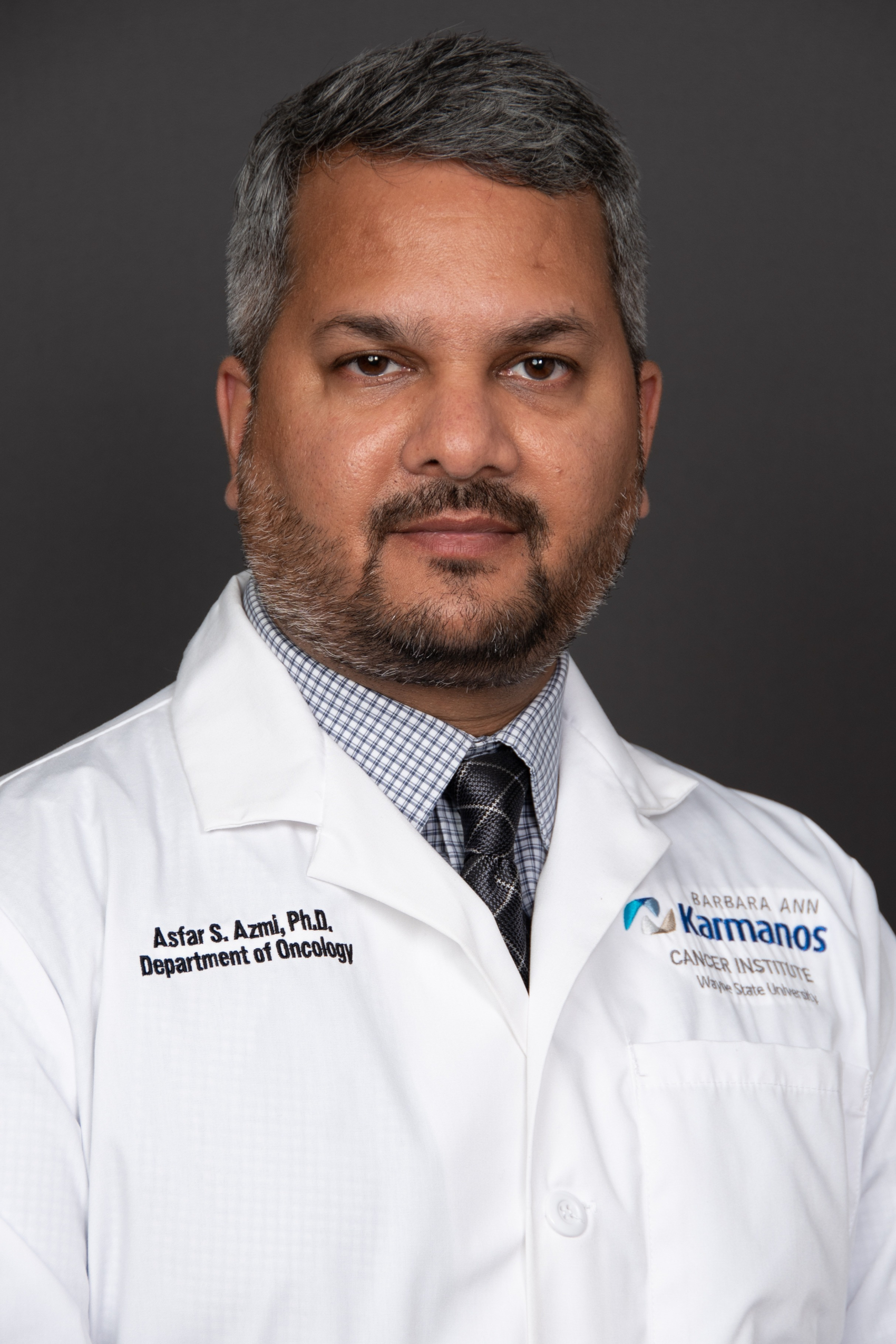 Asfar Azmi, MD, an Associate Professor of Oncology at Wayne State University School of Medicine. He is the Leader of Molecular Therapeutics Research Program as well as the Director of Pancreas Cancer Research at the NCI designated Comprehensive Cancer Center Karmanos Cancer in Detroit Michigan. He has a record of accomplishment in the area of drug discovery research. Dr. Azmi has made significant contributions on pre-clinical and early phase development of new drugs for pancreatic cancer particularly, nuclear export inhibitor selinexor and KRAS pathway targeted therapies. Work done by his team led to the FDA approval of selinexor in several tumor indications. Dr. Azmi has published more than 150 peer reviewed articles in prestigious journals such as Gastroenterology, Oncogene, Clinical Cancer Research, Journal of Biological Chemistry, Molecular Cancer Therapeutics, Nature Reviews Clinical Oncology and Seminars in Cancer Biology. He is the editor of several books on drug discovery topics. Dr. Azmi is the recipient of NIH MERIT award, and young investigator awards from American Pancreatic Association and American Association for Cancer Research (AACR). He is the recipient of Academy of Scholars Award from Wayne State University, Kales Endowed Faculty Award and Heroes of Cancer Award from Karmanos Cancer Institute. His lab is continuously funded by NIH and pharma industry
Asfar Azmi, MD, an Associate Professor of Oncology at Wayne State University School of Medicine. He is the Leader of Molecular Therapeutics Research Program as well as the Director of Pancreas Cancer Research at the NCI designated Comprehensive Cancer Center Karmanos Cancer in Detroit Michigan. He has a record of accomplishment in the area of drug discovery research. Dr. Azmi has made significant contributions on pre-clinical and early phase development of new drugs for pancreatic cancer particularly, nuclear export inhibitor selinexor and KRAS pathway targeted therapies. Work done by his team led to the FDA approval of selinexor in several tumor indications. Dr. Azmi has published more than 150 peer reviewed articles in prestigious journals such as Gastroenterology, Oncogene, Clinical Cancer Research, Journal of Biological Chemistry, Molecular Cancer Therapeutics, Nature Reviews Clinical Oncology and Seminars in Cancer Biology. He is the editor of several books on drug discovery topics. Dr. Azmi is the recipient of NIH MERIT award, and young investigator awards from American Pancreatic Association and American Association for Cancer Research (AACR). He is the recipient of Academy of Scholars Award from Wayne State University, Kales Endowed Faculty Award and Heroes of Cancer Award from Karmanos Cancer Institute. His lab is continuously funded by NIH and pharma industry
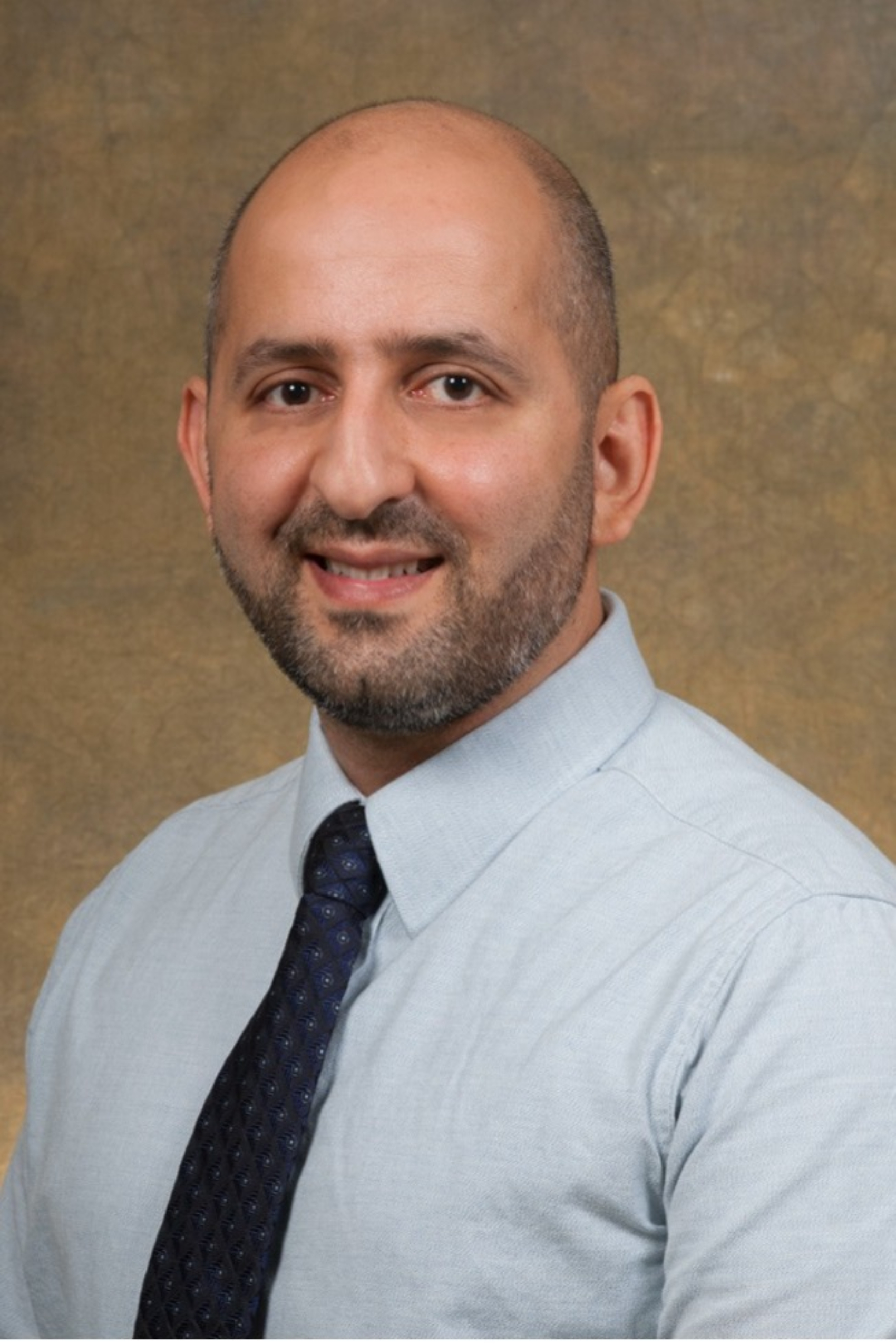 Arash Javanbakht, MD, is a psychiatrist and serves as the director of the Stress, Trauma, and Anxiety Research Clinic (STARC). He is nationally known for his clinical and research work on anxiety, trauma, and PTSD. He is heavily involved in treatment of civilians, refugees, and first responders with PTSD. Dr Javanbakht's research examines the impact of exposure to war trauma in adults and children Syrian and Iraqi refugees, and biological and psychological factors of risk and resilience. This work is funded by an NICHD R01 award. STARC also uses art, dance and movement, and yoga and mindfulness in helping refugee families overcome stress. Dr Javanbakht work in treatment and research of trauma among first responders is funded by the State of Michigan. STARC is also a national leader in utilization of augmented reality and telemedicine technologies for treatment for anxiety disorders and PTSD. Dr Javanbakht's work has been featured on the CNN, National Geographic, Aljazeera, NPR, Scientific American, Washington Post, Smithsonian, PBS, Science, Lancet, American Psychiatric Association Press Briefing, Anxiety and Depression Association of America, American
Arash Javanbakht, MD, is a psychiatrist and serves as the director of the Stress, Trauma, and Anxiety Research Clinic (STARC). He is nationally known for his clinical and research work on anxiety, trauma, and PTSD. He is heavily involved in treatment of civilians, refugees, and first responders with PTSD. Dr Javanbakht's research examines the impact of exposure to war trauma in adults and children Syrian and Iraqi refugees, and biological and psychological factors of risk and resilience. This work is funded by an NICHD R01 award. STARC also uses art, dance and movement, and yoga and mindfulness in helping refugee families overcome stress. Dr Javanbakht work in treatment and research of trauma among first responders is funded by the State of Michigan. STARC is also a national leader in utilization of augmented reality and telemedicine technologies for treatment for anxiety disorders and PTSD. Dr Javanbakht's work has been featured on the CNN, National Geographic, Aljazeera, NPR, Scientific American, Washington Post, Smithsonian, PBS, Science, Lancet, American Psychiatric Association Press Briefing, Anxiety and Depression Association of America, American